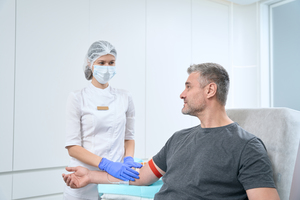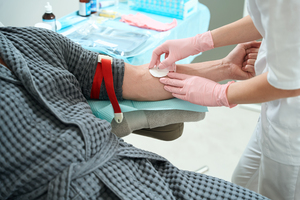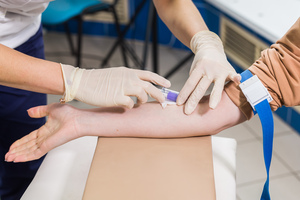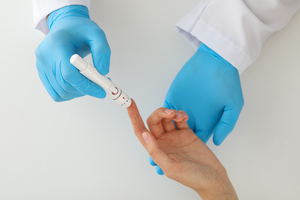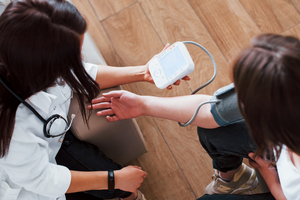Cholesterol Test near me
Own a clinic? Add your location.
Help patients book appointments with you on Solv. It's free!
20 instant-book locations
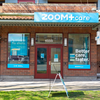

MultiCare Indigo Urgent Care, Wallingford
MultiCare Indigo Urgent Care

MultiCare Indigo Urgent Care, Rainier
MultiCare Indigo Urgent Care

MultiCare Indigo Urgent Care, Bellevue
MultiCare Indigo Urgent Care

MultiCare Indigo Urgent Care, Kirkland
MultiCare Indigo Urgent Care
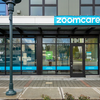
ZoomCare, Kirkland Totem Lake
ZoomCare

MultiCare Indigo Urgent Care, Burien
MultiCare Indigo Urgent Care

South Center Medical Clinic, Primary Care Clinic
South Center Medical Clinic

MultiCare Indigo Urgent Care, Shoreline
MultiCare Indigo Urgent Care

MultiCare Indigo Urgent Care, Tukwila
MultiCare Indigo Urgent Care

AFC Urgent Care, Southcenter
AFC Urgent Care

MultiCare Indigo Urgent Care, Bothell
MultiCare Indigo Urgent Care

MultiCare Indigo Urgent Care, Issaquah
MultiCare Indigo Urgent Care

MultiCare Indigo Urgent Care, Poulsbo
MultiCare Indigo Urgent Care

MultiCare Indigo Urgent Care, Mill Creek
MultiCare Indigo Urgent Care

MultiCare Indigo Urgent Care, Covington
MultiCare Indigo Urgent Care

MultiCare Indigo Urgent Care, Federal Way
MultiCare Indigo Urgent Care

MultiCare Indigo Urgent Care, Maple Valley
MultiCare Indigo Urgent Care

MultiCare Indigo Urgent Care, Point Ruston
MultiCare Indigo Urgent Care

MultiCare Indigo Urgent Care, Uptown Gig Harbor
MultiCare Indigo Urgent Care
Own a clinic? Add your location.
Help patients book appointments with you on Solv. It's free!
About Cholesterol Tests
Cholesterol is not inherently bad. Your body has many uses for it, such as building cells and producing hormones. Too much cholesterol, however, can cause problems.
Cholesterol comes from two different sources. The liver produces cholesterol, and you also get dietary cholesterol from the foods you eat. Animal products such as meat, dairy, and eggs all contain cholesterol. Foods high in saturated and trans fat can cause your liver to produce more cholesterol than you need, resulting in unhealthy cholesterol levels.
High cholesterol increases the risk of heart attack and stroke, which are two leading causes of death in the United States. Approximately 38 percent of American adults have high total cholesterol levels. Because high cholesterol has no symptoms, it’s important to have your cholesterol levels checked and make sure you are within healthy ranges. Even children and adolescents should have their cholesterol levels checked.
The CDC recommends that people over the age of 20 who have a low risk of cardiovascular disease have their cholesterol checked every 5 years [3]. Those with risk factors for cardiovascular disease should have their cholesterol checked more often. Other risk factors for heart disease include high blood pressure, diabetes, and obesity.
Fortunately, there are simple lifestyle changes you can make to lower your cholesterol. Reduce your intake of saturated fats and eliminate trans fats from your diet as much as possible. Trans fats are often listed on food labels as “partially hydrogenated vegetable oil,” and are present in store-bought cookies and baked goods. Eat lots of fresh fruits and vegetables, and avoid processed foods, especially those high in sugar.
Exercise at least three days a week, and get more physical activity. Any type of physical activity helps. Go for a walk on your lunch break, and take the stairs instead of the elevator. Aim for at least 10,000 steps each day.
Don’t smoke, and drink alcohol only in moderation. Not only will these changes help reduce your cholesterol, but they’ll also improve your overall cardiovascular health.
Cholesterol Test FAQs
Do I need to see a doctor before getting a cholesterol test?
A cholesterol test is usually a simple blood test. While you don’t necessarily need to see a doctor first, it’s a good idea to call your doctor’s office and ask what type of test they will perform. That’s because some cholesterol tests may require you to fast before your test.
How much do cholesterol tests cost?
The cost of a cholesterol test depends on several factors, such as the type of test required, where you get tested, and whether you have health insurance. For instance, a cholesterol test at a walk-in clinic or pharmacy may cost around $100.
Does insurance cover cholesterol screening?
Cholesterol testing is often performed during an annual physical, which is typically covered by insurance. However, your insurance plan may have some limitations on cholesterol testing. For example, they may pay for a cholesterol test once every five years. To know what is covered by your insurance plan, you can call your insurance company or check your plan documents.
How can you tell if you have high cholesterol without a test?
High cholesterol has no symptoms. The only way to tell if you have high cholesterol is with a blood test. Men over the age of 35 and women over the age of 45 should have their cholesterol tested. You may be at risk of high cholesterol if you have a BMI of 30 or higher, don’t get enough exercise, smoke, drink alcohol in excess, and eat too much saturated fat or trans fat.
What can I eat the night before a cholesterol test?
If your doctor has instructed you to fast before your cholesterol test, you should not have anything to eat or drink other than water the night before your test. If your doctor has not instructed you to fast, you can eat and drink normally. If you aren’t sure whether you should fast, contact your doctor’s office.
How long should I fast before a cholesterol test?
Most people are required to fast for 9 to 12 hours before a cholesterol test. Fasting prior to your test will help ensure that your test results are not influenced by a single meal. Not all cholesterol tests require fasting, so check with your healthcare provider and make sure to follow their instructions.
How do I interpret cholesterol blood test results?
A cholesterol test includes several metrics, including total cholesterol, LDL cholesterol, and HDL cholesterol. It may also include triglycerides and very low-density lipoprotein (VLDL). Generally, you want your total cholesterol and LDL to be low and your HDL to be high. It’s always a good idea to ask your doctor for help interpreting your results. High total cholesterol could be caused by a higher HDL level, which is actually good. Understanding the breakdown of your test numbers is important.
What is a normal cholesterol range?
Cholesterol is measured in milligrams per deciliter (mg/dL). For adults, total cholesterol levels of less than 200 mg/dL are generally considered good. A reading of 240 mg/dL is considered very high. LDL cholesterol levels should be below 100 mg/dL. An LDL reading of 160 mg/dL is considered high. HDL levels should be 60 mg/dL or higher. An HDL reading of 40 mg/dL or lower is a major risk factor for heart disease.
How can I book a cholesterol test through Solv?
Booking a cholesterol test through Solv is easy. Simply start typing “cholesterol” in the search box and select the option for cholesterol test when it appears. You can use your current location or enter a different location. On the next page, you will see a list of providers near you, along with available appointment times. Select a time and location that is convenient for you and enter your information to schedule an appointment.
Can I do an at home cholesterol testing?
At home cholesterol tests are available, but they may not be accurate or valid. Home cholesterol tests typically involve using a lancet to prick your finger and then applying a few drops of blood onto a test strip. Unfortunately, these tests can be inaccurate if not done correctly.. Also, they typically only check for total cholesterol, which isn’t as useful as knowing your breakdown of LDL and HDL. For the best results, have the test performed by a qualified healthcare provider.

Updated on May 25, 2025
Solv has strict sourcing guidelines and relies on peer-reviewed studies, academic research institutions, and medical associations. We avoid using tertiary references.
Related Searches
DOT Exam
Ear Wax Removal
Physical Exam
Sports Physicals
A1C Test
Basic Metabolic Panel
Blood Test
CMP Test
COVID-19 Antibody Test
Cholesterol Test
Diabetes Test
Diagnostic Test
H Pylori Test
Hepatitis test
Mono Test
Pregnancy Test
RSV Test
STD Testing
Strep Test
TB Test
Thyroid Test
Vitamin D Test
Aetna Urgent Care
Blue Cross Blue Shield Urgent Care
Cigna Urgent Care
COVID-19
Flu
United Health Urgent Care
» All servicesEveryday Healthcare, Simplified
Expert advice to help you live your best life

